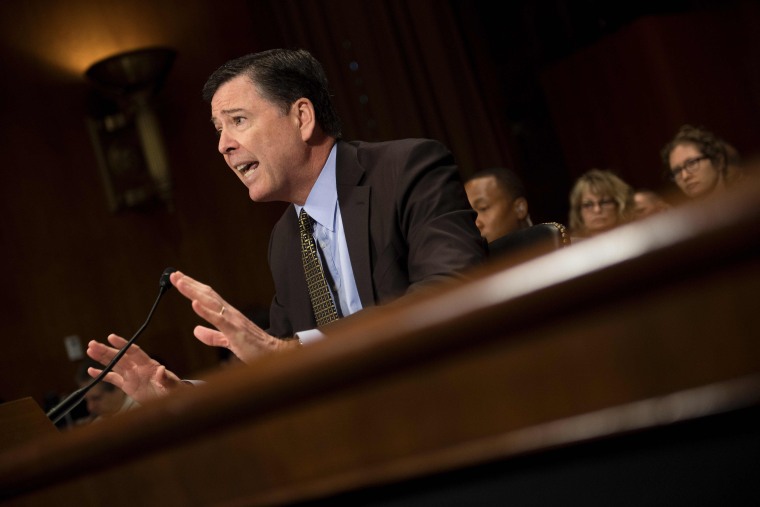As ridiculous as Donald Trump's presidency has been to date, it's still difficult to accept the events of early May, when the president fired then-FBI Director James Comey. Trump soon after acknowledged on national television that he was motivated by his dissatisfaction with the investigation into the Russia scandal, before quietly telling Russian officials in the Oval Office that the move relieved "great pressure" caused by the probe.
The Trump-Russia affair was already an existential threat to this presidency, but these developments four months ago took the scandal to a new level. Late last week, the seriousness came into even sharper focus.
At the time, the Justice Department prepared a memo for Trump, offering a rationalization for him to dismiss Comey. The president then admitted to NBC News' Lester Holt that the memo was irrelevant and that he'd already decided to fire the FBI director anyway. But we learned late last week that Special Counsel Robert Mueller has a copy of a separate document: a letter drafted by Trump and Stephen Miller, a White House adviser, making the case for Comey's ouster.
The Washington Post reported, "The multi-page letter enumerated Trump's long-simmering complaints with Comey, according to people familiar with it, including Trump's frustration that Comey was unwilling to say publicly that Trump was not personally under investigation." The letter was unsent -- White House Counsel Don McGahn balked -- and the administration turned to the Justice Department to create what was effectively a cover story.
But as Joy explained on Friday night's show, this document matters for all sorts of reasons. The New York Times reported:
Mr. Trump ordered Mr. Miller to draft a letter, and dictated his unfettered thoughts. Several people who saw Mr. Miller's multi-page draft described it as a "screed."Mr. Trump was back in Washington on Monday, May 8, when copies of the letter were handed out in the Oval Office to senior officials, including Mr. McGahn and Vice President Mike Pence. Mr. Trump announced that he had decided to fire Mr. Comey, and read aloud from Mr. Miller's memo.
Let's unpack this a bit.
First, we can now say with confidence that a special counsel is examining whether the sitting president obstructed justice, firing an FBI director who was scrutinizing Russia's illegal espionage campaign to put Trump in power. The president desperately wanted Comey to say he wasn't under investigation, which ironically led to a series of events that prompted an investigation into the president.
Second, Deputy Attorney General Rod Rosenstein had a copy of the Trump/Miller "screed" before he wrote the memo intended to create a rationalization for firing Comey. Rosenstein was already a controversial figure in this mess, and if it's true that he knew he was creating a trumped-up cover story for the president, Rosenstein will look considerably worse.
And third, let's not brush past that Mike Pence reference too quickly.
If the reporting is correct, the vice president received a copy of the Trump/Miller letter and was in the room when the president read it aloud, That would suggest Pence necessarily knew the real reason Trump was firing Comey: it was because of the investigation into the Russia scandal.
And yet, the vice president told the public that Trump's decision was based on Rosenstein's recommendation -- a claim the president soon after contradicted, but just as importantly, a claim Pence apparently knew to be untrue when he said it.
There's been some debate in recent months about the vice president's culpability: when he's said things that weren't true defending Trump, did Mike Pence know he was deceiving the public, or was he simply passing along falsehoods he'd been given by the White House? This latest reporting, if accurate, points towards the former, not the latter.
Postscript: In June, the vice president lawyered up. Perhaps now we know why?
